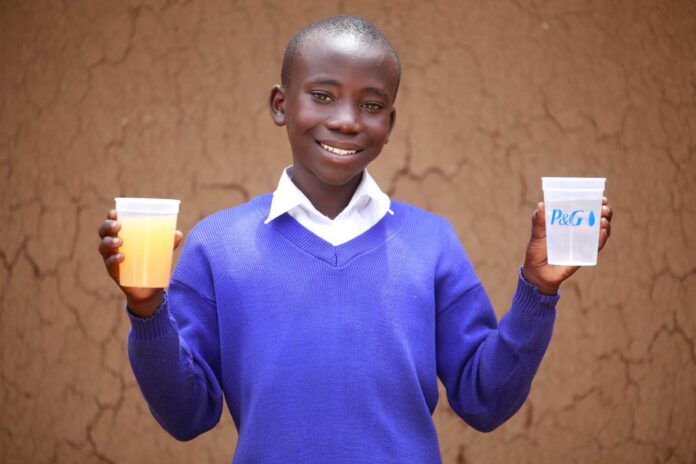Dangote Cement Plc and other stakeholders have charged extractive industries to prioritize protection of groundwater to ensure environmental preservation.
This is according to a statement signed by Mr Francis Awowole-Browne, Corporate Communications Personnel, Dangote Industries Limited, on Tuesday in Lagos.
This year’s world water day’s theme is “GroundWater: Making the Invisible Visible”.
The theme is centred on the fact that groundwater is only 3 per cent of the world’s fresh water and yet the largest and most widely distributed source of freshwater.
To mark the 2022 World Water Day, Lagos Business School Sustainability Centre, in collaboration with Dangote Cement Plc and the United Nations Environment Programme (UNEP), hosted a webinar.
At the event, businesses were urged to deliberately incorporate the protection of groundwater in their operational designs and sourcing of industrial production facilities.
Head, Community Affairs and Environment, Dangote Cement Plc, Engr. Tukur Lawal, noted that Dangote Cement had always engaged in the global best sustainability practices in this regard.
Lawal said some of the best practices by Dangote Cement Plc, included the dry cement production process, recycling and reuse of 20 per cent of water at the company’s Ibese plant in South West Nigeria.
“We as well channel treated water to farmers in the surrounding communities; a development which has benefitted about 143 farmers in Zambia,” he said.
Dr Igazeuma Okoroba, Head, Sustainability, Dangote Cement Plc, said the forum was organised to raise awareness and promote collaboration in the sustainable use of groundwater; an essential resource for everyone.
UNEP Water Specialist, Mr Patrick Lumumba M’mayi, emphasised the need for collaboration and partnership between communities, academia, government and businesses to tackle groundwater pollution and drive sustainable management of the precious resource.
“The question then becomes: How much do we invest in this resource so that it’s available for our use today and remains available for our generations yet unborn?,” he queried.
Mrs Oreva Atanya, Manager, LBS Sustainability Centre, also charged the stakeholders to leave with a sense of collective responsibility.
“While organisations like UNEP work based on requests from governments, companies in the extractive industry should also ensure they adhere to the highest environmental standard. NGOs and citizens have a duty as well,” she said.
Kaine Chinwa, a scholar, stressed the importance of Africa finding solutions locally to mitigate groundwater pollution which was already prevalent around the continent, especially in Nigeria’s Niger Delta region.




